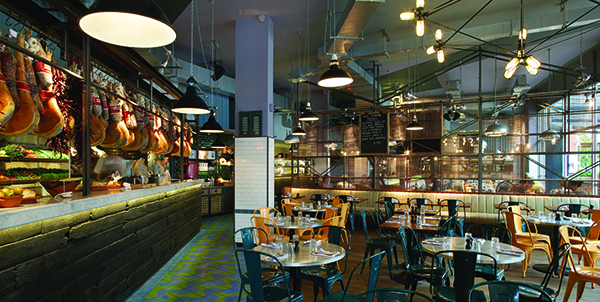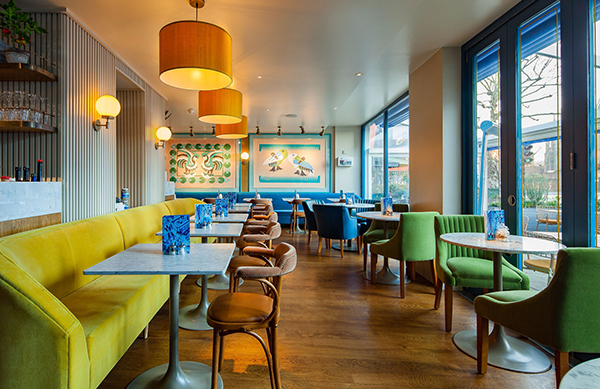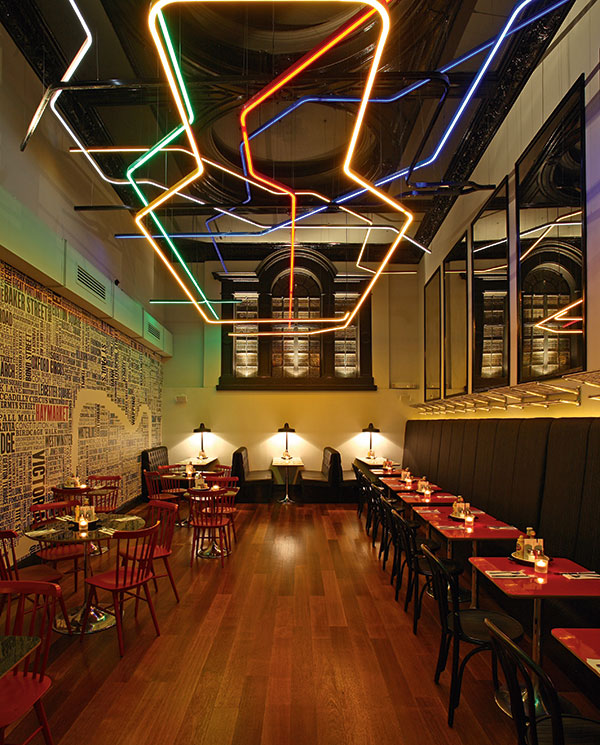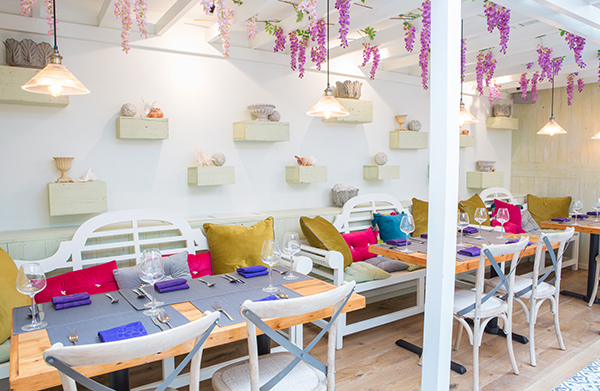Business casual: who are the winners in the casual dining market?
With turbulence in the casual dining sector showing no signs of abating, Janie Manzoori-Stamford examines how some chains have failed while others continue to thrive
Innovation and reinvention are no strangers to the casual dining sector, but they have certainly hit the high street this year with renewed vigour and purpose. Given the recent turbulence in the sector, it's easy to see why. Casual dining casualties have been in abundance over the past 18 months. Company Voluntary Agreements (CVAs) were flying around the high street like confetti last year, enveloping Jamie's Italian, Byron, Carluccio's, Prezzo, Gourmet Burger Kitchen and Gaucho in their wake.
Market turmoil then spilled over into 2019, with further CVAs approved for Giraffe and Ed's Easy Diner, while previous efforts to rescue Jamie's Italian were unsuccessful. The group, which included the remaining Barbecoa site in One New Change and Fifteen London, collapsed into administration last month.
zaExpress, which last year saw earnings fall by 15.3%, has since embarked on a major revamp of the 44-year-old brand. In March the company launched a new by-the-slice grab-and-go concept called Za in London's Fenchurch Street and relaunched its Oxford Street site with the brand's first defined bar space and an open kitchen, highlighting a shift in the way it expects its customers to visit.
And the Restaurant Group (TRG) revealed in its 2018 full-year results plans to rebrand underperforming sites within its 650-strong portfolio, which includes Frankie & Benny's and Chiquito's. Eight sites will be converted to Wagamama after the Japanese-style restaurant chain was acquired by TRG to the tune of £559m at the end of last year.
But these are far from isolated efforts to weather the casual dining storm through reinvention, with operators of all sizes and cuisines seeking new ways to remain fresh and relevant to today's consumers.
It's all about authenticity
For Carluccio's, which has been a high-street presence since it was launched in 1999 by late founder Antonio Carluccio, this comes in the form of its £10m Fresca transformation programme.
The plan is to revitalise the brand and elevate the guest experience through restaurant refurbishments, new menus across its 77-strong estate, and investment in staff training and development after last year's CVA.
"Following the success of our Richmond pilot, we are investing into key sites with a goal to have completed 14 refurbishments by the end of the calendar year. Heathrow Terminal 5 and Bluewater are up next and due to open later this month," says chief executive Mark Jones.
"Some restaurants had not seen any investment in more than a decade. By rolling out project Fresca we hope to reassert our brand credentials as one of the UK's leading Italian restaurant groups."
Modern open dining spaces and vibrant colours will be matched by a new, diversified menu that includes small plates, freshly made pasta, steaks, fish and heritage dishes inspired by Antonio Carluccio's motto of "minimum of fuss, maximum of flavour", indicating a determination to revisit the brand's rich history.
It's a move that is welcomed by Molly Johnson-Jones, head of strategy and customer at hospitality, leisure and retail consultant Stone & River.
nkie & Benny's, the TRG-owned Italian-American restaurant brand that launched in Leicester in 1995 and today operates in more than 240 sites across the UK, has taken a slightly different approach to its own new F&B offer while remaining true to its signature style.
When it introduced 26 new dishes alongside five new alcohol-free drinks last month it was to meet a shift in consumer tastes head on, as well as to appeal to a more grown-up audience.
"We spent time speaking to our guests to really understand what they were looking for from us," explains Elise Ash, director of strategy and brand at TRG. "It became clear it was important to remain true to our Italian-American food heritage, while offering a quality range to support more grown-up occasions."
The aim is to cater to a spectrum of tastes. Recognisable classics, such as meatballs al forno, have been reintroduced alongside new ingredients, a salad range and seven vegan options, taking the number of plant-based dishes on the menu to 22, marking a commitment to one of the UK's fastest-growing food trends.
"Tastes are evolving towards healthier and meat-free diets as well as reduced consumption of alcohol, especially with young adult diners," says Ash. "This drove the introduction of a wider range of alcohol-free drinks ranges earlier this year. Yet, despite these changes, there's still broad appeal for the familiar - as long as it's good quality and value for money."
Fast food
Of course, recovery isn't the only driving force behind reinvention. According to Johnson-Jones, Wagamama is known for its innovative, fast-changing food and it's an approach that pays off; the chain outperformed the UK restaurant sector in its second quarter to 11 November 2018 with turnover up 15.4% year-on-year to £81.5m. And its Midas touch continued into its new ownership, helping new parent company TRG's sales to increase by 57% versus like-for-like growth of 2.8%.
Meanwhile, Thai restaurant group Giggling Squid, riding high on its own expansion to 32 sites from 24 in the 12 months to 30 April 2019, has undergone the biggest menu change in its 10-year history. The reason: to satisfy the increasingly adventurous palate of its customers.
Leap of faith

Continue reading
You need to be a premium member to view this. Subscribe from just 99p per week.
Already subscribed? Log In














